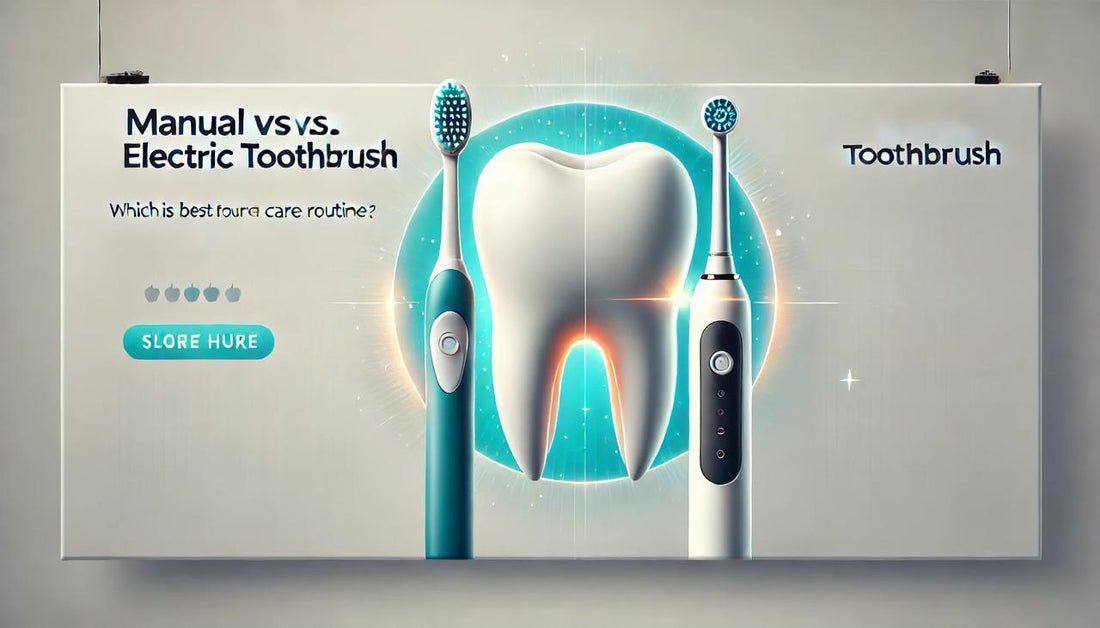
Manual vs. Electric Toothbrush: Which is Best for Your Oral Care Routine?
Share
Brushing your teeth is the foundation of good oral hygiene, but choosing the right toothbrush can make a big difference. The debate between manual and electric toothbrushes continues, with each offering unique benefits. Let’s break down their advantages and how to build the perfect oral care routine for a healthy smile.
1. The Importance of a Good Oral Care Routine
A solid routine helps prevent cavities, gum disease, and bad breath. No matter what toothbrush you use, consistency is key. A good oral care routine includes:
✔ Brushing twice a day
✔ Flossing daily
✔ Using mouthwash
✔ Cleaning your tongue
✔ Staying hydrated and eating a tooth-friendly diet
✔ Visiting the dentist regularly
Now, let’s dive into the toothbrush comparison.
2. Manual Toothbrush: Classic and Effective
Manual toothbrushes have been around for decades and remain a popular choice.
✅ Benefits of a Manual Toothbrush:
✔ Affordable & Easily Available – You can find them anywhere at a low cost.
✔ Portable & No Charging Needed – Great for travel and everyday use.
✔ Full Control Over Brushing Pressure – Helps prevent
over-brushing.
⚠ Limitations:
❌ Requires Proper Technique – Many people brush too hard or too fast.
❌ May Not Be as Effective for Plaque Removal – Compared to electric brushes,
manual ones require more effort to clean thoroughly.
3. Electric Toothbrush: High-Tech for Better Cleaning
Electric toothbrushes use rotating or vibrating bristles to clean more efficiently.
✅ Benefits of an Electric Toothbrush:
✔ Superior Plaque Removal – Studies show electric brushes remove more plaque than manual ones.
✔ Built-in Timers – Helps you brush for the recommended two minutes.
✔ Ideal for People with Limited Mobility – Great for kids, elderly, or those with arthritis.
✔ Pressure Sensors – Prevents over-brushing that can damage gums.
⚠ Limitations:
❌ **More Exp

